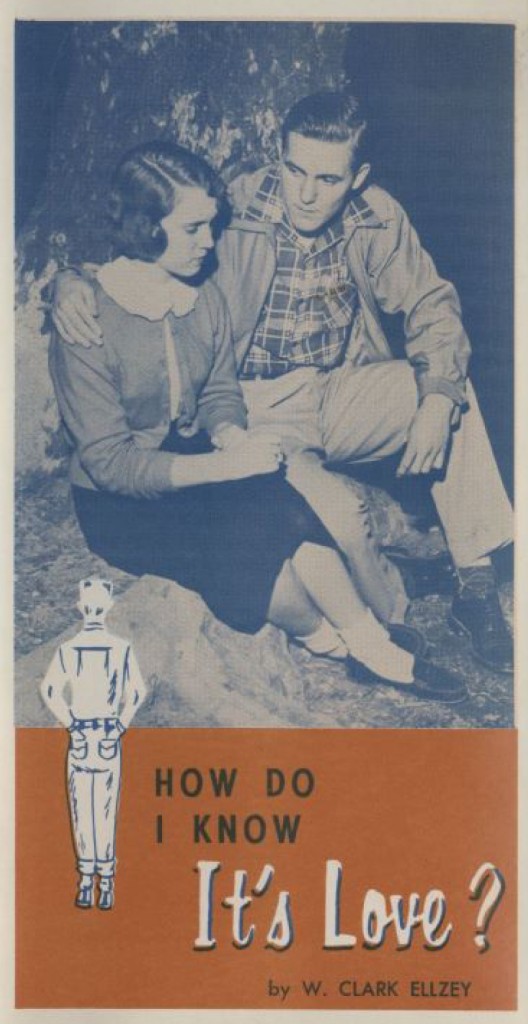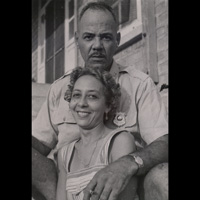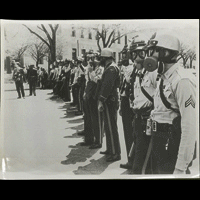 Happy Valentine’s Day, folks! Do you know it’s love?
Happy Valentine’s Day, folks! Do you know it’s love?
These late-1950s leaflets, many of which were produced by the Christian Education Service, can help you answer your puzzling love questions. Titles of pamphlets include “Going Steady: Pros and Cons,” “SEX In Your Life,” “How Do I Know It’s Love?” and “Now You are Engaged.”
The pamphlets were originally written to address teenagers’ questions about premarital sex, relationships, and marriage. What is most interesting about them is their tone of relative openness, especially considering the time period in which they were written. While the leaflets undeniably discourage premarital sex, the tone of the writing is not damning or bombastic. Lines such as “There is no reason to have had these guilts if we properly understand that this discovery of sex and self is part of growing up” and “now is the time we should know the facts of life very clearly and begin to call a spade a spade” show that the writers , and the Christian Education Service itself, maintained the stance that sex should be talked about instead of ignored.
The ten leaflets (part of the Martha Jane Starr Collection, available at LaBudde Special Collections) serve as a testimonial to Mrs. Starr’s advocacy for women and families, and her attitude of open communication about issues such as sex and family planning. Mrs. Starr, who gifted her collection to LSC in 2010, dedicated her life to serving women and families in the Kansas City community.
Born on November 27, 1906, in Bartlesville, Oklahoma, she was the daughter of L.E. Phillips, a co-founder of Phillips Petroleum. She moved to Kansas City soon after marrying John Wilbur “Twink” Starr in 1929. Mr. and Mrs. Starr worked as active community leaders in Kansas City. Mrs. Starr was the first woman to be elected to the UMKC Board of Trustees, after the University of Kansas City merged with the UM system in 1963. She was also on the board of the Kansas City Planned Parenthood chapter, and even served as the local organization’s president.
In addition to her many other philanthropic contributions, she founded the UMKC Women’s Council, was the first woman to be honored with the Chancellor’s Medal, and, in 1971, spearheaded the creation of the UMKC Graduate Assistance Fund , which continues to assist women graduate students at UMKC. Mrs. Starr passed away on November 14, 2011, just weeks before her 105th birthday.
Thanks to artifacts such as these historical leaflets, which represent a small fraction of her collection, her message of open dialogue on issues affecting women and families continues to resonate with us today.
Like this:
Like Loading...
 From police detective to politico, Leon Mercer Jordan became one of the most distinguished African-American leaders in the state of Missouri before his untimely death in 1970. Forging a prolific and colorful career that took him from Kansas City to West Africa and back again, Jordan served three terms in the Missouri House of Representatives, co-founded a local political organization for African-Americans, and trained the national police force in the Republic of Liberia.
From police detective to politico, Leon Mercer Jordan became one of the most distinguished African-American leaders in the state of Missouri before his untimely death in 1970. Forging a prolific and colorful career that took him from Kansas City to West Africa and back again, Jordan served three terms in the Missouri House of Representatives, co-founded a local political organization for African-Americans, and trained the national police force in the Republic of Liberia.

